Retired Beesands fisherman Graham Lynn has lived in the village practically all his life and comes from a family of fishermen.
He actually came from Wales as he explained: “I was born in Port Talbot.
“My mother was Welsh but my father must have met her during the war.
“He was in the Royal Navy so I'll take it that's how they met.”
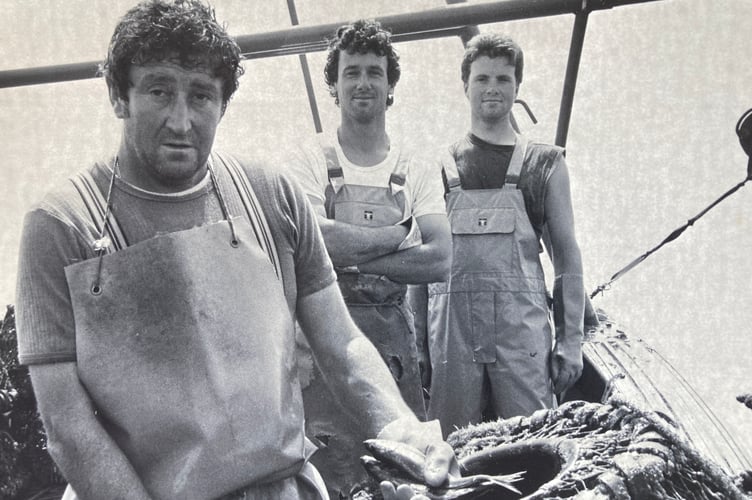
Graham’s father was a fisherman and the council requisitioned properties which they rented out to young servicemen.
Graham continued: “After so many years they started building a few new council houses in each village and they built 14 at Beeson and they moved us from Beesands to the next village, Beeson, in a brand new council house about 1955.
“We had a nice coal-fired Rayburn which gave us plenty of hot water and you had a proper bathroom with a nice big tub, plenty of hot water which is a good thing.

Graham’s great grandfather James Lynn used to live in Hallsands just to the south of Beesands which was washed away by the sea in 1917.
Graham explained what happened: “It started because the government awarded contracts, for a lot of shingle to be dredged in Start Bay to build Devonport Dockyard.
“I remember right, they took about 800,000 tonnes of shingle from very close to the shore in front of the old village.
‘The fishermen warned them at the time what would happen and sure enough, they were right after X amount of years, they said their natural sea defence is disappearing
hence the sea getting closer and closer to their front doors.
“In the end, after several batterings over a few years, in 1917 they had one real severe battering and that finished it.
“There was no loss of life, but that was the end of the village.”
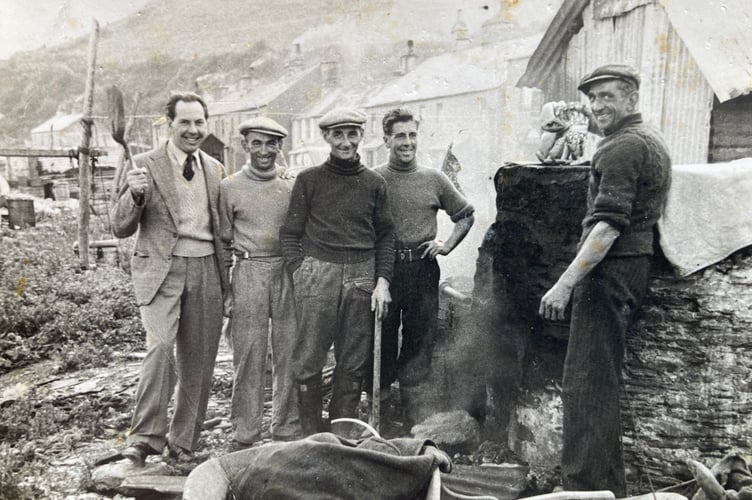
Graham remembers regularly speaking to Elizabeth Ann Prettyjohn who was the only person not to leave Hallsands.
He told us: “We'd walk down the beach because there was plenty of shingle.
“You could just walk down on the foreshore and we always stopped to talk to her because we was only like 9, 10, 11 year old boys.
“She was probably seventy and very wrinkled and weather beaten, but living on her own like.
“Of course, she knew all our fathers like. You know, and we used to have a good old natter with her, like, yeah, quite a lovely old lady, like. She's still got relations in at Kingsbridge now.”

Graham’s great grandfather James Lynn rode and sailed.
He also used motor boats when they first appeared around 1920.
“I had two brothers.
“My next brother down from me, we were always going to be fishermen, but father never ever mentioned going to sea or going fishing.
“We just wanted to go and that was it, you know.”
When Graham left school there weren't many openings for 15-year-old lads, it was all old men with old boats, and it was a pretty tough life for a 15-year-old.
He was doing a milk round for a farmer, and carried on for 12 months until I was 16 on the farm.
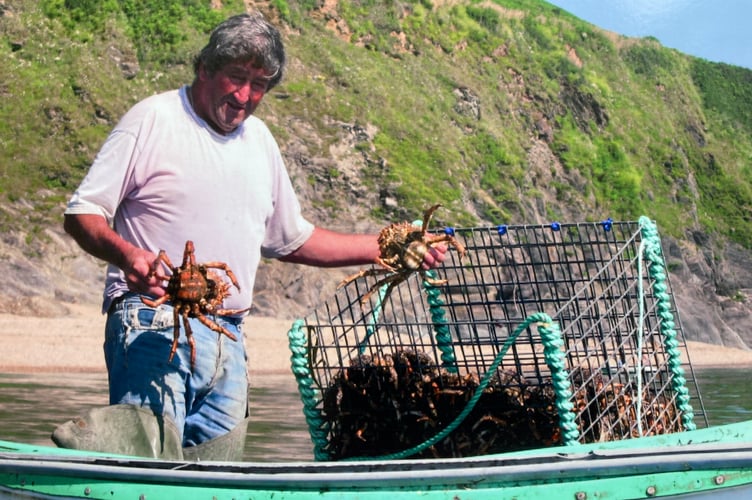
As soon as he was 16, he joined the Merchant Navy.
Graham said: “I was on deck and we'd done everything from cleaning out holds, maintenance of the boat, steel boats, chipping and painting, and anything that wanted to do with the maintenance of a boat.
“First of all, I had to go to Gravesend in Kent to do a 12-week sea training course.
“No pay, take your own pocket money, but all the grub and lodging was all free.
“I'd never been on a train in me life, like a lot of villagers at 16, we never went on holiday or nothing like that.
“It was quite a feat, the landlord of the pub done a little bit of taxi work took me to Dartmouth, where British Rail ran to Kingswear in them days, and I had to find my way to Gravesend in Kent never been on a train in me life but I got to Paddington in the end.
“I'd done my 12-week training course and came back to Beeson, well, I was living at Beeson then, we'd moved from Beeston to Beeson, and I thought, just the job, fortnight before Christmas, I'll have Christmas at home, which is always good with your family and in the local village, because they always celebrate Christmas pretty well as they do today. “But I had a bloody phone call or whatever from Plymouth, I had to go and join a ship a week before Christmas, so that was the end of me Christmas at home and I was six months away on that one, I'd done four trips carrying crude oil.”
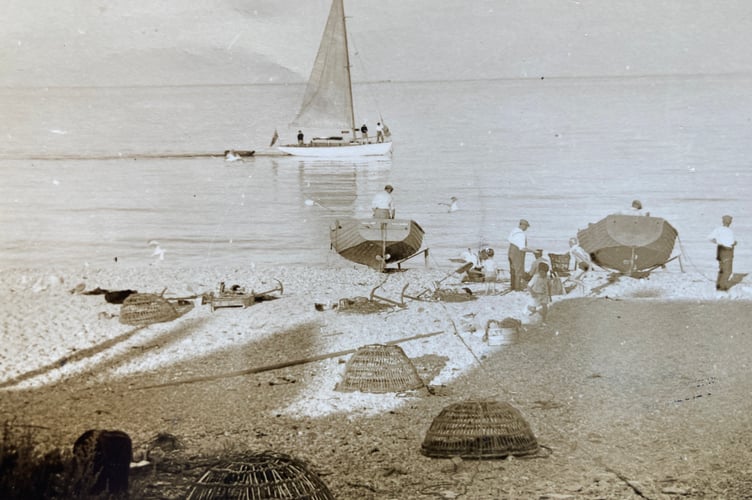
Graham’s uncle who was his father's partner in the boat was one of the men going to bigger boats, working from Dartmouth, where they could go to sea more often, because often from Beesands they were restricted by surf after a stormy night with rollers and you couldn't launch your boats on the beach.
Graham remarked: “The trend was go to Dartmouth and invest in bigger boats, be more independent, get to sea more often, work more crab pots.”
“So it was an opening for me.
“I came home on leave and jumped straight in with my father on the beach here in 1968. And I spent six years on the beach fishing here in an open boat.
“They were all open boats and when I started, there was five boats.
“There were 20-foot clinker-built boats, heavy boats.
Graham remarked on the changes: “Oh, it's changed a lot.
‘When I started, men were just finishing with willow crab pots, and there were several of them still worked the full quantity of willow pots.
“Me and me father were changing over to what we call wire pots, wooden hoops and wire, which is the next step up from willow pots, more durable, lasts longer than that. p[-;’xc
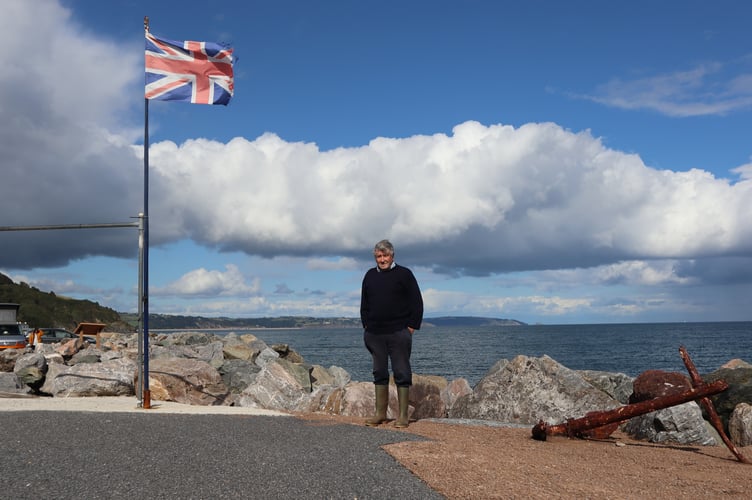
“Most of the catch went to Billingsgate Market in London.
“We had a chap called Ned Steer in the village, his sole livelihood was running a lorry for the fishermen because there was about three dozen, well that was before my time, but originally there had been three dozen, forty men on and living off the beach.
“The lorry driver, took all your catch to Kingsbridge railway station, and it was in Billingsgate at three or four o'clock the next morning, and that was six days a week.”
When Kingsbridge station closed they had to transport the fish from Totnes.
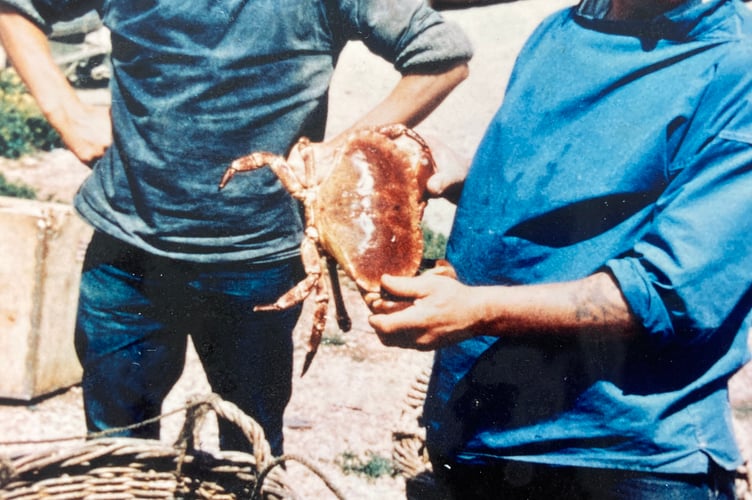
Graham says a lot has changed in Beesands: “Well, definitely the people.
It's all second homes, it's about nine, ten second homes now.
“I mean, I've got a lot of friends and they're all nice people but you do miss them old Devonian tight-knit community, you know, it's all gone and I think it's very sad, you know, nobody will ever see it again.
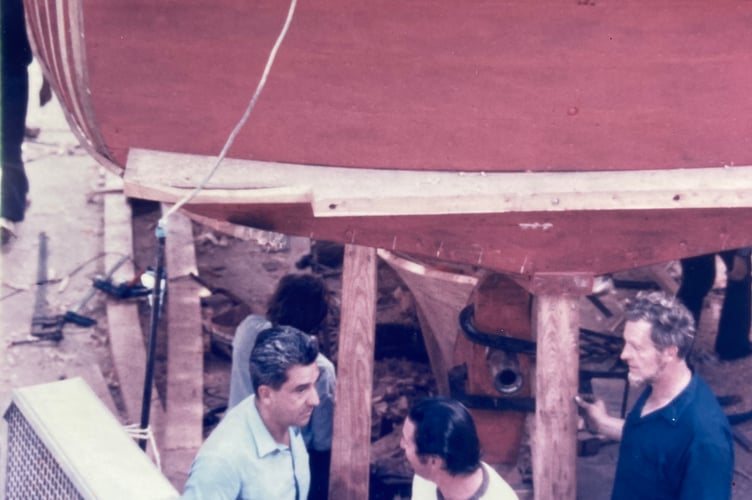
‘Another thing that we've missed, we've lost our shingle, it seems to be an ongoing thing.
I think that Devonport dredging probably started the issue, but it's still going on and, you
know.
“It seems to be on a northward drift towards Blackpool Sands, but when we used to get east wind, it would bring it back, but it doesn't seem to happen.
“It seems to be going one way now and not returning, so we've lost thousands and thousands of tons of shingle.”

What is Graham’s prediction for the future of the village?: “Well, 50 or 100 years, I got me doubts whether the village will be here.
“If it wasn't for the sea wall, there wouldn't be no village there but you're listening to the news and everything with global warming, sea levels rising.
“I mean, in my lifetime, the sea is 150 yards further in now than when I was a boy and it's encroaching all the time.”
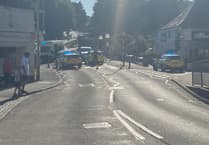



Comments
This article has no comments yet. Be the first to leave a comment.